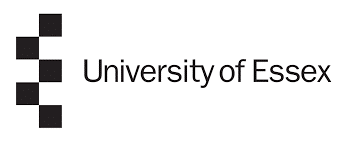It was love that brought Tishya Mei Balan to the study of psychology. Her sister was born with Down’s syndrome, a condition in which a person has an extra chromosome. It changed how her sister’s body and brain developed, and wrought physical and mental challenges throughout her life.
But caring for her led Balan to many new skills and interests that ultimately inspired her to pursue the scientific study of the mind and behaviour. Growing up in Kuala Lumpur, a child psychologist was her role model. “It was my best friend’s mother and she was a principal of a special needs school,” she says. “I truly thought that was the dream job.”
The NHS defines psychology as the “study of people: how they think, how they act, react and interact.” It’s about “all aspects of behaviour and the thoughts, feelings and motivation underlying such behaviour.”
For Balan and the students of psychology everywhere, it is so much more. It’s what helped her make sense of the world as a child, how she drew insights into her sister’s inner life and how she dealt with a world that often failed to understand its most vulnerable members.
“At its heart psychology is a scientific discipline, but in many ways, it is different to any other science because we are both the scientists and the thing we are studying. I think that is what makes psychology so attractive and interesting because it allows us to understand ourselves and others better,” says Dr. Gethin Hughes, Director of Education in the Department of Psychology at the University of Essex.

The BSc Psychology programme at Essex takes a problem-based learning approach. Source: University of Essex
In a world grappling with an addiction to painkillers, a mental health crisis, a loneliness epidemic, and an increase in antidepressant prescriptions to children, it’s crucial for us to know more about ourselves and the world. We have yet to tap into the full power of psychology to help us understand how we interact with others (at work, socially or romantically), how we’re dealing with biases and prejudice, and how we develop as human beings. It’s imperative that psychology focuses on how we think, interact and experience the world so that we may have the knowledge, tools and resources to solve these problems.
At the University of Essex, students get to do just that. All BSc Psychology students follow a curriculum that takes a problem-based learning approach. The first year of the BSc Psychology is taught in blocks and covers core psychological content, with research methods and statistics integrated into those content modules rather than taught as standalone items. In the second year, students gain more knowledge on psychological topics such as social, cognitive, and developmental psychology as well as statistics. Those who want to learn more about data science have the option to specialise further in Year 2 and Year 3. The department also offers a range of specialised optional modules in the final year, allowing students to gain greater depth in topics that truly interest them.
“Like other sciences, psychology also relies on data collection and analysis, which means that students have to learn a range of different skills that will benefit them throughout their lives and careers,” says Hughes.
The emphasis here is on solving real-life problems. Hence why more theoretical content in lectures are explicitly linked to the problem that it might contribute to solve, there are efforts to exemplify course content using topics that appeal to students and assessments cover a range of skills so all students have their chance to show what they can do better and improve the skills that they need to.

BSc Psychology students are learning about the latest scientific developments in the discipline. Source: University of Essex
All of the above is backed by research from the start. “As all staff at Essex are active researchers, the course offers a research-led education,” says Hughes. “This means that rather than learning from dusty old textbooks, our students are learning about the latest scientific developments in the discipline. Of course, there are still background texts that students will use to gain the breadth of knowledge, but we mainly try to show students how psychological science works, rather than passively reading about it in textbooks.”
For lecturer and Director of Admissions in the Department of Psychology, Dr. Eva Gutierrez-Sigut, nothing brings theories to life better than the projects and the Research Experience Scheme. “Students have the opportunity to work with an academic and dive deep into a topic. My students often comment on how the lab experience grounded their understanding of the topics they read about (in their project and beyond),” she says. “Activities designed to evaluate real-life cases are also well regarded, for example, in the forensic psychology section of our Applied Psychology module. Students search for and analyse a real case of misjudgement of justice.”
What makes the Department of Psychology stand out, however, is passion. “I think this interest shines through in the research-led education that we offer our students,” says Hughes. “We appreciate that every student is different, and we try to support everyone in reaching their full potential.”
Follow the University of Essex on Facebook, Instagram, Twitter and YouTube











